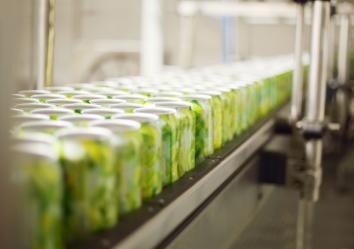Facebook and the dating site OkCupid have each recently admitted to running secret experiments on their users.
Facebook loaded some users’ news feeds with more negative posts from their friends and family to see if it would make them less happy and engaged with the site. (Surprise: It did.) OkCupid lied to some users about their compatibility with potential dates to see if they’d still get together. (Surprise: They did, although not quite as often as they got together with people with whom they were actually compatible.)
Both experiments led to consternation among users who didn’t appreciate being treated as psych subjects without their knowledge. But OKCupid co-founder Christian Rudder set the whiners straight with a blog post vindicating the site’s actions. “Guess what, everybody: If you use the Internet, you’re the subject of hundreds of experiments at any given time, on every site. That’s how websites work.” The Harvard Business Review agrees: “The real problem in corporate America isn’t too many experiments—it’s too few.”
Thus reassured that we’re the crazy ones for expecting companies not to deceive us about their products and business practices, we couldn’t help but wonder: What other totally ethical clandestine experiments might our corporate overlords be running in the name of science and profit?
We won’t know until they deign to tell us. (Not that they owe us anything, of course. We’re just data points!) But here are a few guesses, along with the contributions to human knowledge that they might be expected to yield.
- Does food poisoning make people less happy? Yelp investigates by switching its worst-rated sushi restaurants’ reviews with those of its most highly rated.
Hypothesis: Some people will get sick, but others will eat the bad sushi and give it five stars.
- Are alcohol’s effects partly psychosomatic? Inspired by the keg party episode from Freaks and Geeks, Anheuser-Busch substitutes O’Douls for Bud Light in every third six-pack.
Hypothesis: Most customers will still act drunk, although some will wonder why their beer tastes slightly less metallic than usual.
- Are counterfeit handbags really such a turn-off to fashionistas? Exploring cost-saving measures, Louis Vuitton tries replacing all the merchandise in a subset of its stores with knockoffs from New York City street vendors.
Hypothesis: Kanye West will call for a boycott.

Pavel L Photo and Video / Shutterstock.com
- Is truth less profitable than fiction? The Mail Online runs an A/B test to find out whether real news stories get as many page-views as the ones it fabricates.
Hypothesis: If you sensationalize the headlines enough, it makes very little difference.
- Do empty inboxes make people lonely? The inquiring minds at Yahoo Mail introduce a software bug that halts delivery of messages to millions of users for days at a time.
Hypothesis: Users will be sad and outraged, but most will not leave the service as long as Marissa Mayer apologizes very sincerely.
- Are yuppie liberals as sensitive to gluten as they think? To get to the bottom of the latest food craze, Whole Foods injects gluten into some products labeled “gluten-free.”
Hypothesis: Only a small percentage of customers will require hospitalization.
- How gullible are heroin addicts? In the face of flagging sales, the Barksdale Crew renames its product and changes the caps from red to blue.
Hypothesis: The junkies will eventually notice the difference, forcing the crew to strike a deal with Proposition Joe.
- Nature or nurture? To help shed light on an age-old question, Cedars-Sinai Medical Center swaps 5 percent of babies at birth without notifying their parents.
Hypothesis: Most parents will still love the children, and some will in fact greatly prefer them to their biological spawn.
- Is one religion as good as the next? A scientifically curious group of priests, rabbis, and imams investigate by trading sermons for a few weeks.
Hypothesis: Admission rates to heaven will remain unchanged.
Previously in Slate:
